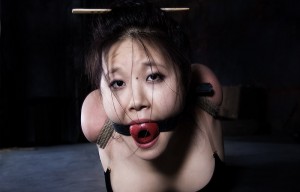Psychosexual dysfunctions in The Philippines
The conservative attitudes of the Filipino people towards sexuality are rooted in many factors, from its colonial history, its religious institutions, and its unstable governments. As in many other places across the world, many sexual taboos in the Philippines are rapidly melting due to increasing accessibility of mass media and the new ideas that it cultivates, particularly from Western influences. It is only appropriate that psychosexual health of Filipinos is yet again being transformed by foreign influences given its history has been largely characterized by interference. Traditional sexual views in Filipinos are strongly influenced by centuries of influence by Islamic culture, Chinese migrants, Spanish Catholic values, and today the tremendous American and Western influence that accompanies the process of globalization. For better or for worse, all of these cultures contributed in molding the collective attitudes of the Filipino population in establishing their attitudes to sexuality. The psychosexual dysfunctions suffered in the Philippines even today reveal much about its people through the lens of culture, religion, and history.

Religion holds a central place in the life of the majority of Filipinos. Hinduism, Islam, Buddhism, Judaism, and the Bah·’Ì Faith have all been introduced and are practiced in the Philippines. However, missionary activity during the Philippineís colonial rule by Spain and the United States transformed the Philippines into a predominantly Christian nation. Today, 90% of Filipinos belong to the Christian faith, with 81% belonging to Roman Catholicism. The Roman Catholic Church exercises great influence on the Filipino political and social landscape. For example, concerning abortion laws in the Philippines, the current criminal code penalizes with prison sentences women who have an abortion and the professional who performs this service. Religious political parties, with support from the Catholic Church, continue pushing for tightening the existing legislation and its enforcement. This is despite reports from the Department of Health of the Philippines that difficulties women experience in obtaining modern contraceptives as a result of social and political constraints force women to undergo unsafe abortion procedures that were responsible for 12% of all maternal deaths in 1994. Still, faith guides legislation.
When analyzing psychosexual dysfunctions in the Philippine context, there are some confusion. Homosexuality is not punishable by law, but is often viewed by Filipinos to be sinful and a psychosexual dysfunction. Officially, psychosexual dysfunctions are disturbances of sexual functioning that may be caused by mental and emotional difficulties. To sexual experts in the Philippines, scientific and psychological origins of psychosexual dysfunctions conflict with their deeply held cultural-religious beliefs. As a result, psychosexual dysfunctions are often viewed as an issue of morality and loss of faith. For those who suffer from psychosexual dysfunctions, such as such as impotence, premature ejaculation, vaginismus or anorgasmy, such diagnosis does nothing but add confusion and distress. The causes of psychosexual dysfunctions are often originating from stress, anxieties, and depression. The ostracizing nature of being blamed and condemned for suffering from psychosexual dysfunctions only enables this psychosexual slump to worsen in patients.
It is important to note that Filipino views on psychosexual dysfunctions are not merely rooted in its conflict with faith. It also mirrors Filipino cultural attitudes towards male and female identity. For example, femaleís suffering from anorgasmia, or the inability to achieve orgasm, was never viewed to be a psychosexual dysfunction until recent years because female sexuality was inextricably intertwined with the purpose of procreation, not gratification. ìPhysicians did not feel comfortable discussing healthy sexuality issues,î wrote the Director of Sexual Dysfunction Center in New Jersey, Dr. Jose Florante Leyson about a 1984 study he conducted. ìSome of these doctors even felt personally offended, especially in being asked to deal with the ìsexually oppressedî minority social groups, such as the aging, homosexuals, and the mentally and physically disabled.î The restraint nature of Filipino culture created many taboos in psychosexual dysfunctions rendering science ineffective in solving them.
In the past two decades, the greater openness towards discussing sexuality and changing habits towards it have opened Western ideas of psychotherapy, behavioral sex therapy, and medication to dealing with psychosexual dysfunctions. In men, the most common male psychosexual problems are impotence, premature ejaculation, and decreased libido. In Filipino women, the most common are pain during intercourse and decline in libido. Their causes are as it is in other cultures too, from stress to guilt to anxiety to depression. Today, in urban areas of the Philippines, sexual dysfunction management has evolved from the herbal remedies that were prescribed by experts in decades past to a greater focus on the psychological.
[ad#downcont]At the same time, many Filipinos cannot afford psychotherapies and prescriptions to anti-depressants. This trapping of societal inequality reveals an underlying cause of psychosexual dysfunctions in the Philippines. Globalization has allowed psychosexual dysfunctions to be better understood. But, Filipinos have to also endure some of the more challenging aspects attached to the infusion of new globalized ideas, such as increased market competition and confusion over national identity with the influx of new institutions and beliefs. If Filipinoís basic way of life is shaken by these processes, then it is natural that its aftershocks will leave their psychosexual personalities shaken too. Dealing with psychosexual dysfunctions has never been straightforward with Filipinos. It may be foolish to believe that is expected to change.
